Health & Medicine
-
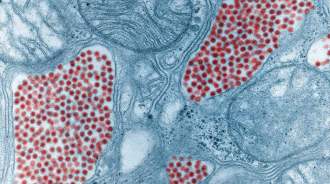 Health & Medicine
Health & MedicineRare eastern equine encephalitis has killed 9 people in the U.S. in 2019
2019 is the worst eastern equine encephalitis outbreak since tracking began in 2003, with 31 cases and nine deaths from the brain infection so far.
By Sofie Bates -
 Humans
HumansPersonalized diets may be the future of nutrition. But the science isn’t all there yet
How a person responds to food depends on more than the food itself. But what exactly is still a confusing mix of genes, microbes and other factors.
-
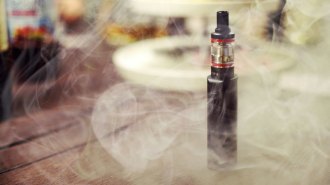 Humans
HumansVaping-related illness reports have surged to 805 from 46 U.S. states
Twelve people have now died from lung injuries tied to e-cigarettes, the U.S. Centers for Disease Control and Prevention finds.
-
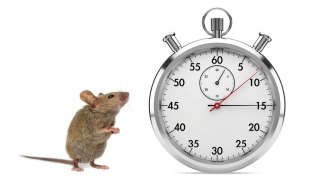 Health & Medicine
Health & MedicineA mouse’s metabolism may follow circadian rhythms set by gut bacteria
While animals’ circadian clocks control functions from sleep to hormone release, gut bacteria dictate when mice’s small intestines take up fat.
-
 Health & Medicine
Health & Medicine50 years ago, scientists warned of marijuana’s effects on the unborn
In 1969, scientists warned about prenatal marijuana exposure. Researchers today are still untangling drug’s effect on fetuses.
-
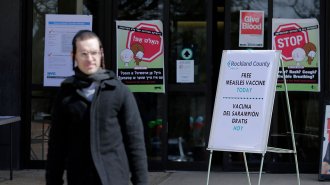 Health & Medicine
Health & MedicineRockland’s measles outbreak is over, but U.S. elimination status is still at risk
Officials in Rockland County in New York announced that their measles outbreak, which began October 1 of last year, is finally finished.
-
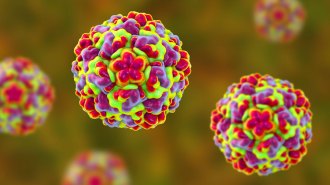 Health & Medicine
Health & MedicineDisabling one protein might one day lead to a cure for the common cold
Scientists have identified a protein in humans that some viruses, including those that cause colds, need to spread.
By Sofie Bates -
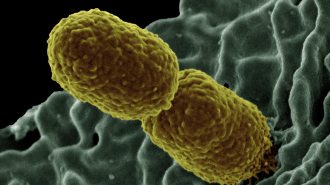 Humans
HumansAlcohol-producing bacteria could cause liver disease in some people
A majority of patients with nonalcoholic fatty liver disease also had gut bacteria churning out medium to high levels of ethanol.
-
 Health & Medicine
Health & Medicine1 in 4 U.S. high school seniors has vaped recently — up 4.5 percentage points from 2018
A 2019 survey finds the number of high school and middle school students who report using e-cigarettes recently continues to grow.
-
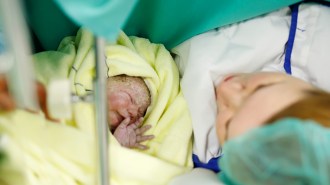 Humans
HumansBabies born by C-section have more potentially infectious bacteria in their guts
Microbial mixes in babies’ guts differ depending on birth method.
-
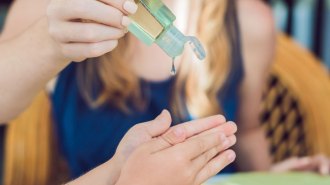 Health & Medicine
Health & MedicineMucus prevents hand sanitizers from quickly killing the flu
Flu viruses can hold out for minutes against ethanol when encased in wet mucus.
-
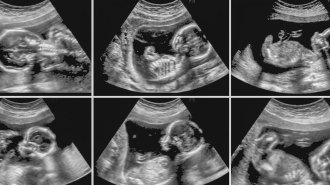 Health & Medicine
Health & MedicineAir pollution can reach the placenta around a developing baby
A small study of women living in Belgium found soot embedded in their placental tissue.